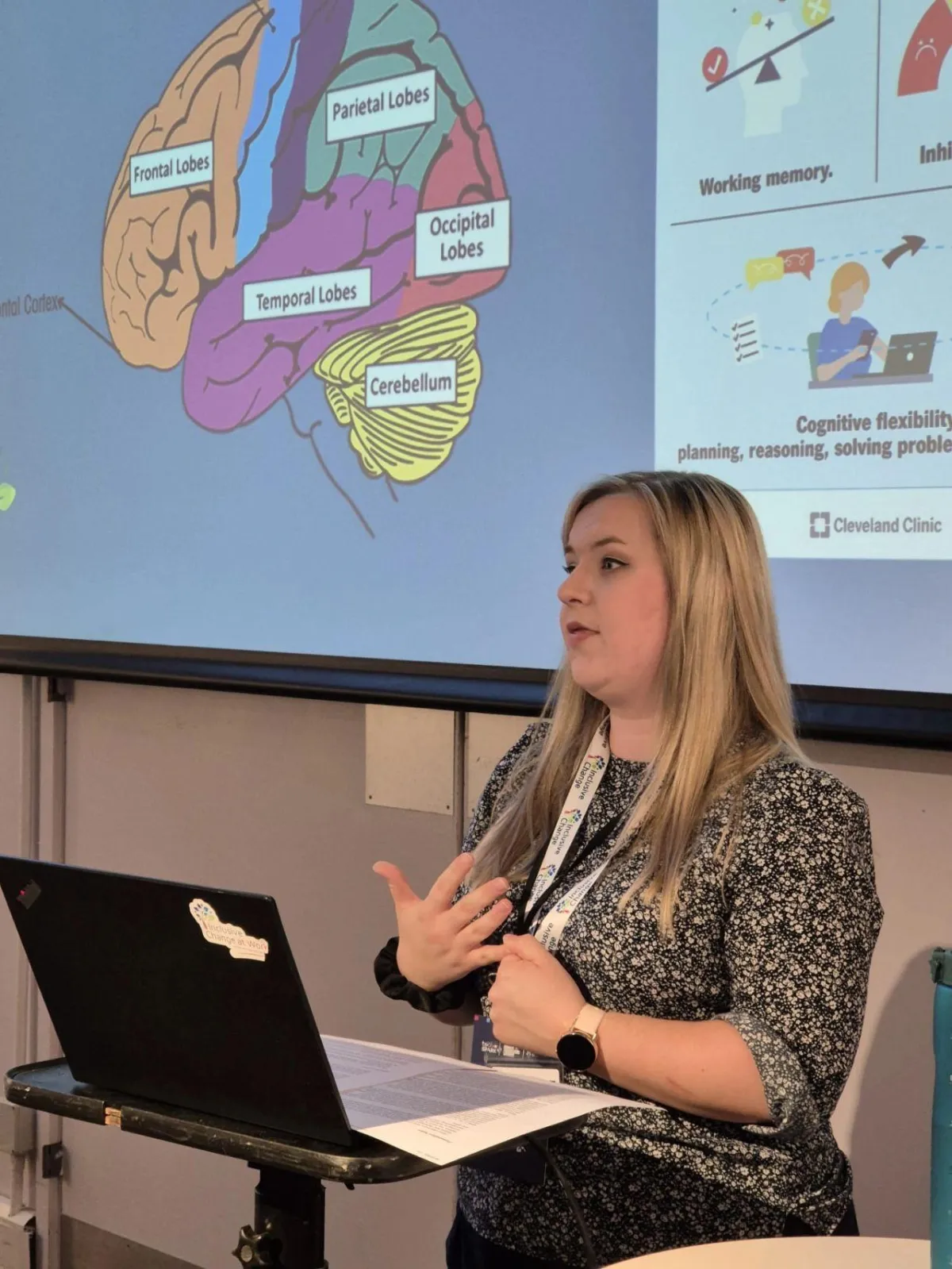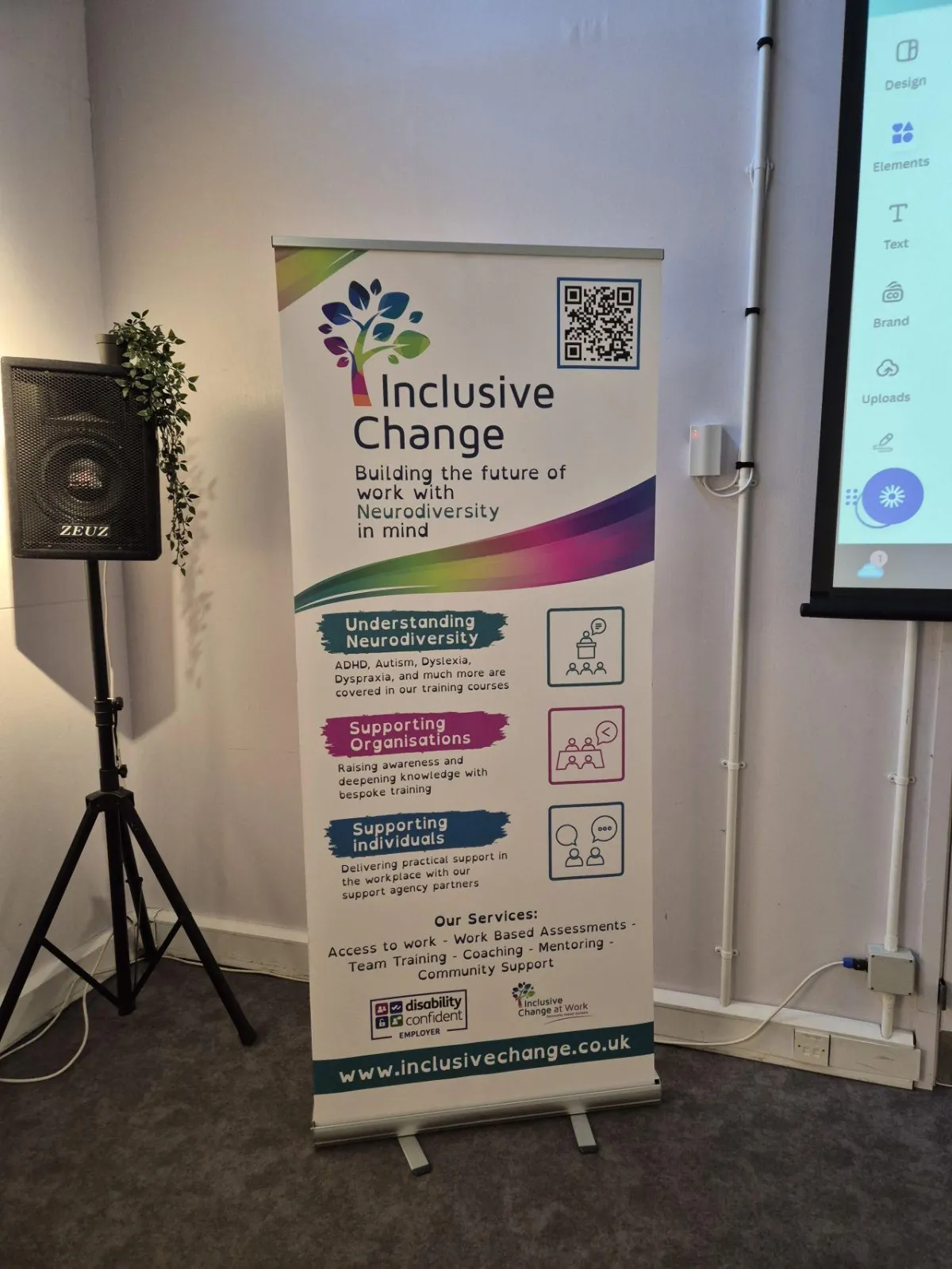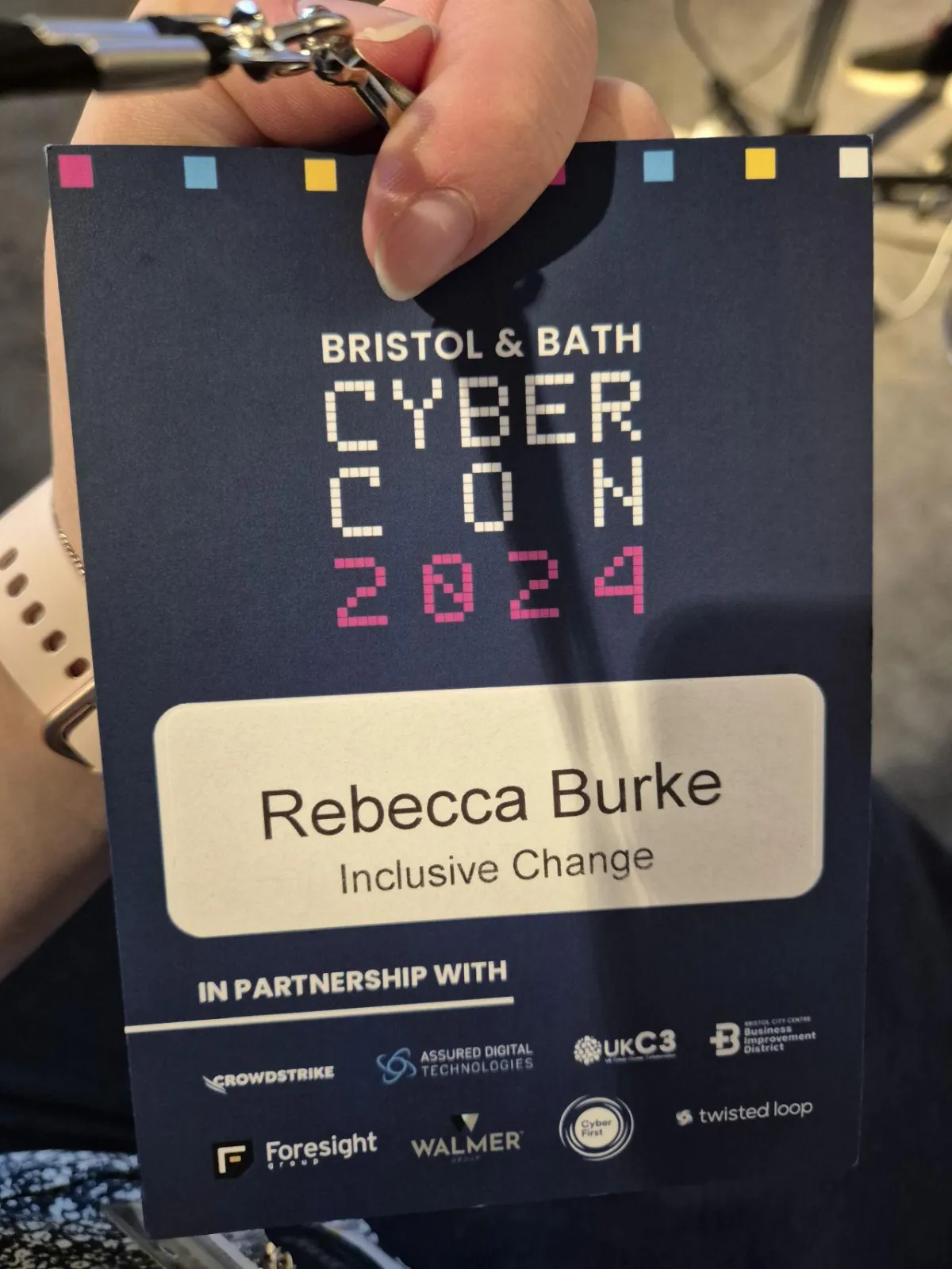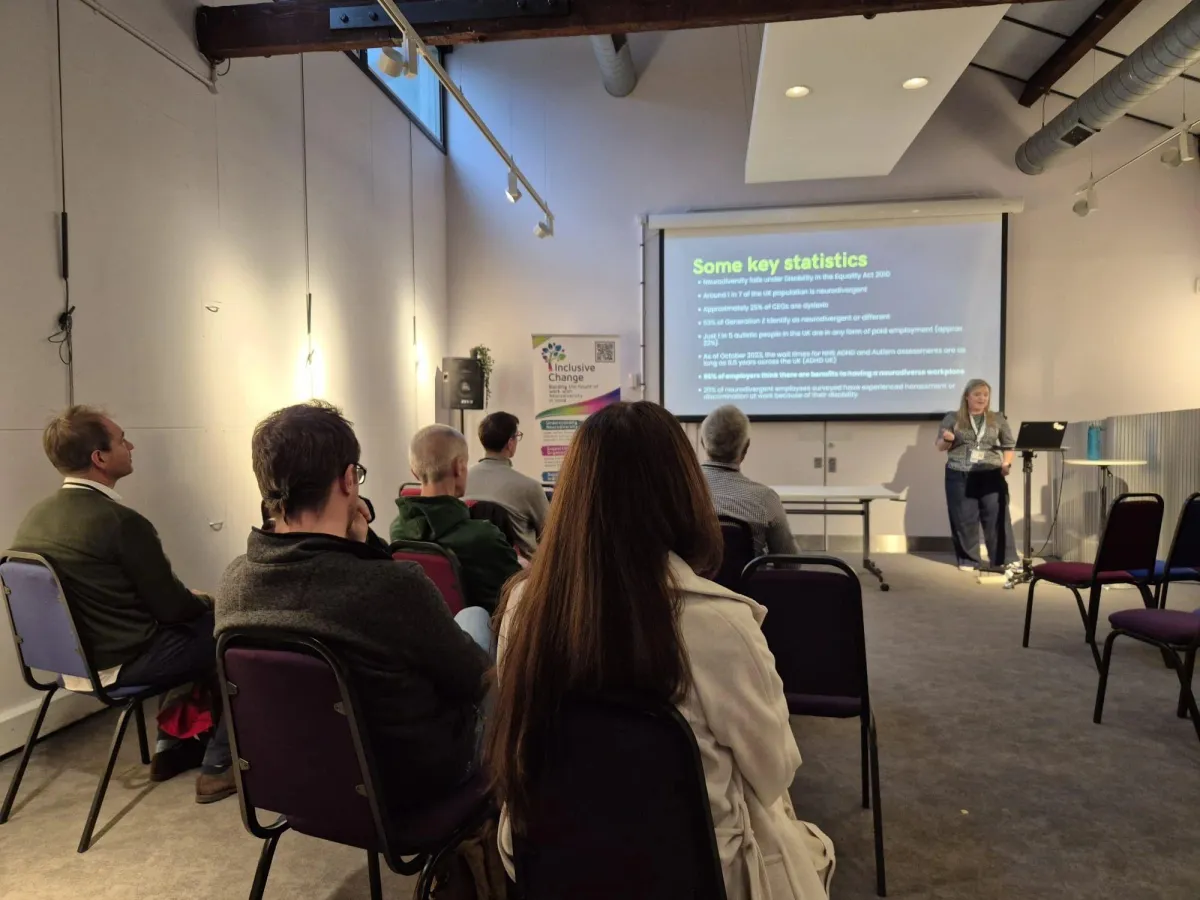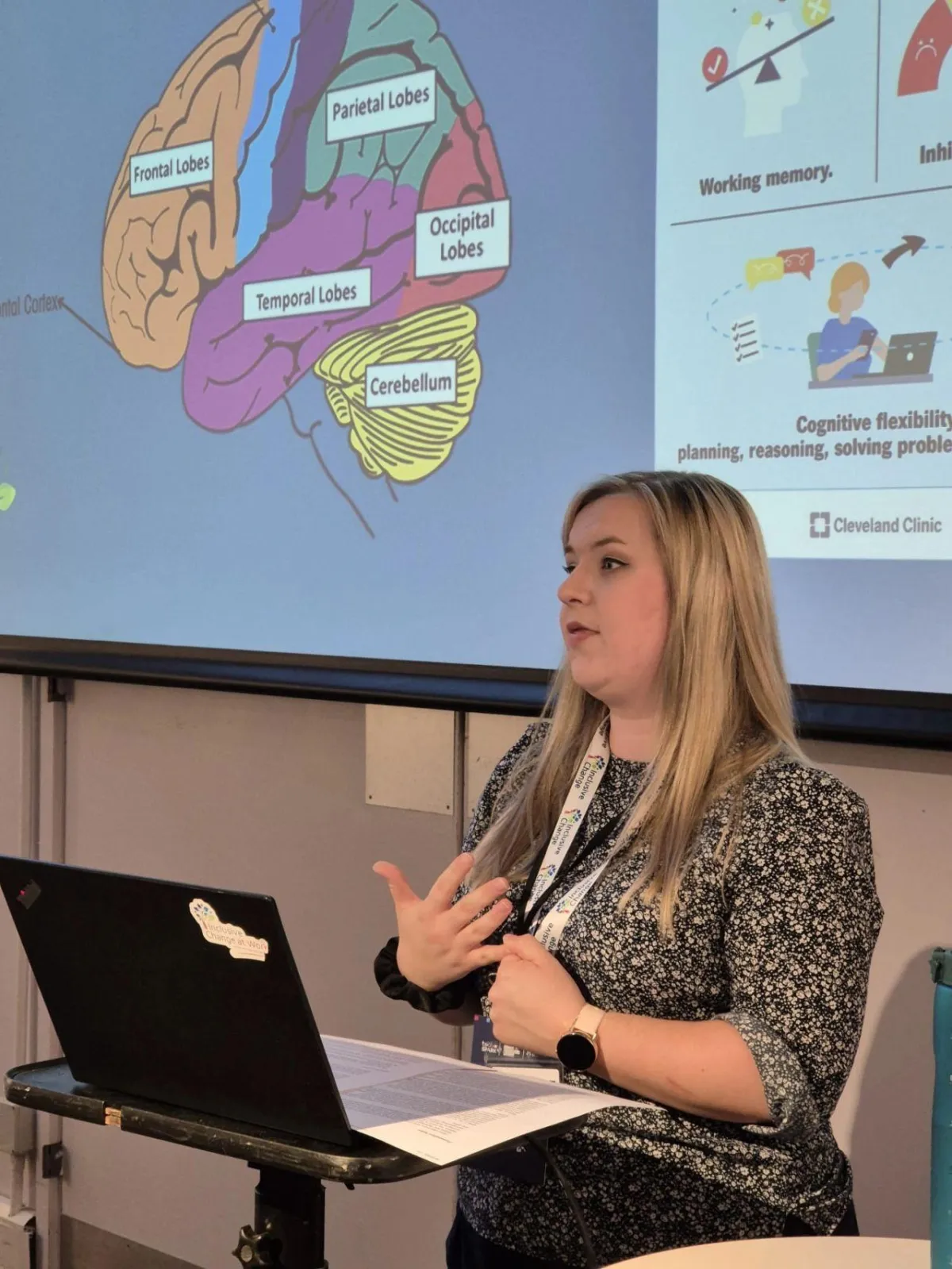
Becca Burke
Speaker
Empowering Neurodiversity in the workplace
Hi, I am Becca!
I'm Becca, a passionate advocate for neurodiversity and understanding ADHD in the workplace. Living with ADHD (combined presentation) myself, I bring a unique blend of professional experiences and personal insights to the conversation about creating inclusive, productive work environments. Equity in the workplace is especially important for us as neurodiverse folk; if given the adjustments and support we need, we can not only survive, but thrive at work.
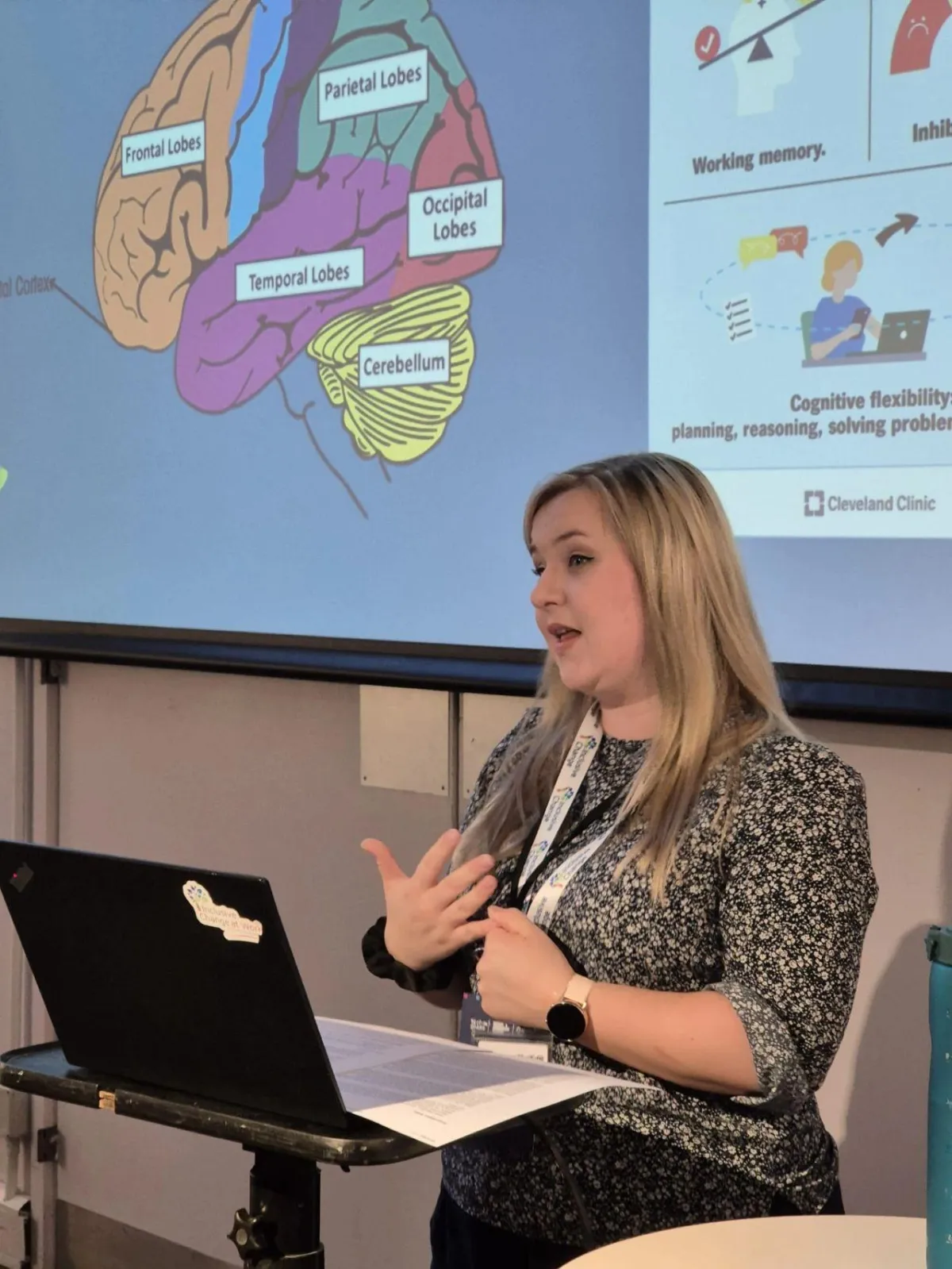
My professional journey
My career path has been varied, in true ADHD style! From my early days in customer relations to roles in sales and account management, I've always excelled in building relationships and understanding people's needs. My time at a FTSE 100 bank gave me a solid foundation for navigating large organisations and the politics of the office environment, and I then had to adapt quickly to the drastic changes of the Covid-19 Pandemic Lockdown. It was during this time, recognising the disruption to my routine, hyperfocusing on work outside of my core hours, and my inability to finish any tasks to completion, that I realised something wasn’t working for my brain.
Throughout my career, I’ve recognised that I was struggling, but never quite understood why. I saw so much of my own journey in the struggles I heard from other neurodiverse people, and I wanted to find a way that I could tangibly make a difference. After my own diagnosis in early 2024, I was inspired to become an ADHD Coach with Leanne Maskell's ADHD Works, and led to me being headhunted for Inclusive Change Ltd as Support Specialist.
My Areas of Expertise
- ADHD awareness and management strategies
- Education and training around ADHD for businesses
- Job coaching neurodivergent clients at work
- Rejection Sensitive Dysphoria awareness/training
- Business process improvement for neurodiverse workforce support
- Working with clients as a neurodiversity educated Virtual Assistant
- Neurodivergent talent recruitment and retention
- ADHD Works Level 1 Coach
Popular Discussion Topics
- Rejection Sensitive Dysphoria (RSD) & ADHD
- ADHD and the menopause
- ADHD screening in prisons
- ADHD and neurodiversity co-occuring traits
- ADHD celebrities
- Current research development
Living with ADHD
- Physiological difference in the brain
- ADHD facts and figures
- Common misconceptions
- Lived experience
- Interactive Q&A
ADHD in the Workplace
- Common challenges and strategies
- Strengths ADHDers bring to the workplace
- Challenges for us in the workplace
- Helpful strategies
- Reasonable Adjustments
- Equality Act 2010 protection
My Speaking Style
I pride myself on being engaging, insightful, and empathetic. My presentations blend personal anecdotes, research-based strategies, and interactive elements that leave audiences both informed and inspired. I like making complex topics accessible, and providing concrete, implementable solutions to common workplace challenges.
Why Choose Me?
At Inclusive Change, we understand your ‘Why,’ and meet you where you are on your journey as a business. Whether you're looking to educate your HR or leadership teams, or provide valuable insights to your entire organisation, I can help. I don’t believe that we as neurodivergent people need to change who we are to succeed; with the right support, education and awareness, we can be ourselves without compromise.
Work with me
Ready to transform your understanding of ADHD in the workplace?
Would you like me to run a workshop for you?
Get in touch using my calendar below.
Read my blog here: https://inclusivechange.co.uk/blog/b/adhd-and-me
Read more
The blog
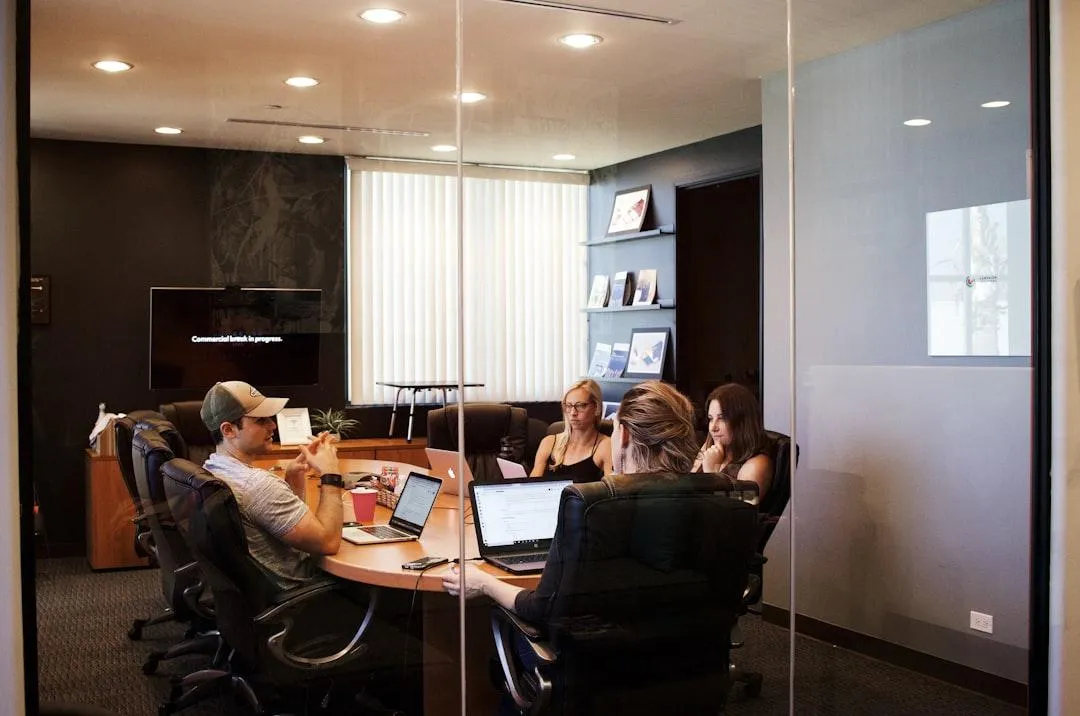
ADHD at Work: Small Adjustments, Big Impact
ADHD at Work: Small Adjustments, Big Impact
October is ADHD Awareness Month, and one question I hear often is, “What can we do right now that would really help colleagues with ADHD?” The good news is, you don’t need to overhaul your organisation overnight. Inclusion and understanding neurodiversity at work, is not about a big bang initiative. It’s about small changes, consistently applied, that add up to make a real difference.
Why understanding ADHD in the workplace matters
ADHD is more common than many realise. Some colleagues have a diagnosis, others are waiting for assessment, and many are masking their challenges, which can sometimes be misinterpreted as capability concerns. The impact is often invisible, but it is there and supporting employees with ADHD is more important then ever. Environments designed without ADHD in mind can add friction, while environments designed with inclusion unlock focus, creativity, and problem-solving for the whole team.
Small changes, big impact
Clear expectations
Ambiguity is a barrier. Sharing clear goals, timelines, and what “good” looks like helps everyone. A short agenda before a meeting, or a two-line summary of next steps afterwards, can prevent hours of wasted effort.
Shorter, sharper meetings
Meetings that run long and back-to-back leave little room for focus or recovery. Try setting meetings for 30 minutes, and encourage a break in between longer meetings. It’s a small adjustment, but the difference in energy, attention and outcomes are huge.
Make work visible
Task boards, shared documents, and agreed owners reduce reliance on memory and email chains. When the work is visible, it is easier to track progress and stay aligned.
Offer choice in delivery
Some people work best in writing, others verbally, others visually. Allowing choice in how work is delivered focuses attention on outcomes rather than one rigid process. Flexibility makes space for strengths.
Protect focus time
Deep work is hard to achieve in noisy or interrupt-driven environments. Offering quiet spaces, noise-cancelling tools, or simply encouraging blocked focus time helps colleagues with ADHD to do their best work, and benefits many others too.
Feedback that sticks
Feedback lands best when it is clear, specific, and kind. Instead of general comments, agree on the next small step together. This makes feedback actionable and motivating.
Shifting the culture
What all these examples have in common is that they are not “special treatment.” They are good practice for everyone, which happens to reduce barriers for people with ADHD. When we make the invisible visible, protect time, and design with flexibility in mind, the culture shifts towards inclusion by default.
The bigger picture
Small changes add up, but sustaining them takes commitment. That is why awareness months like this are important starting points. They give us permission to pause, reflect, and experiment. The next step is embedding what works into the everyday, becoming the norms, driving policies and creating an inclusive culture.
Want to know more?
If you’re curious about what inclusive adjustments could look like in your team, explore our Inclusive Change training prospectus or get in touch to arrange a call.
Some of the Companies Inclusive Change Have Worked With So Far


Column Header
Lorem ipsum dolor sit amet consecetuer lorem ipsum
Organically grow the holistic world view of disruptive innovation
At the end of the day, going forward, a new normal that has evolved
Column Header
Lorem ipsum dolor sit amet consecetuer lorem ipsum
Organically grow the holistic world view of disruptive innovation
At the end of the day, going forward, a new normal that has evolved
Column Header
Lorem ipsum dolor sit amet consecetuer lorem ipsum
Organically grow the holistic world view of disruptive innovation
At the end of the day, going forward, a new normal that has evolved
Inclusive Change Ltd
The Brightwell, Bradbury House
Wheatfield Drive
Bradley Stoke, Bristol
BS329DB
Copyright 2025 - Inclusive Change Ltd
Companies House: 12412464
VAT NO: 352 1564 17
ICO Reg: ZB081779
UK Register of Learning Providers: 10090652

